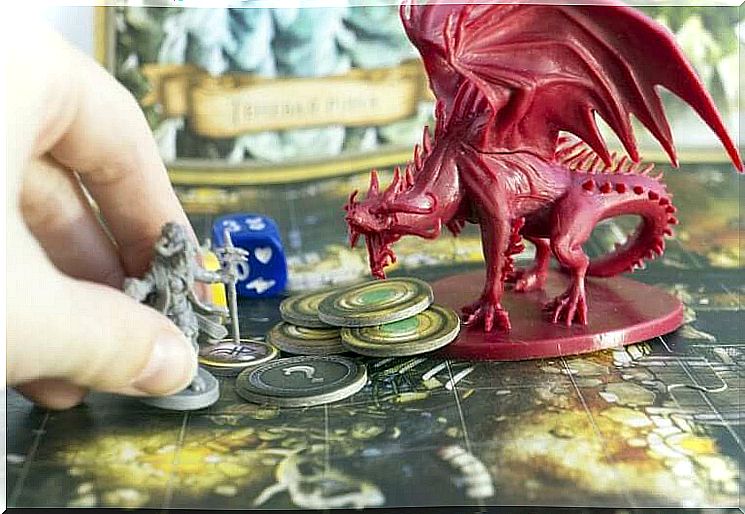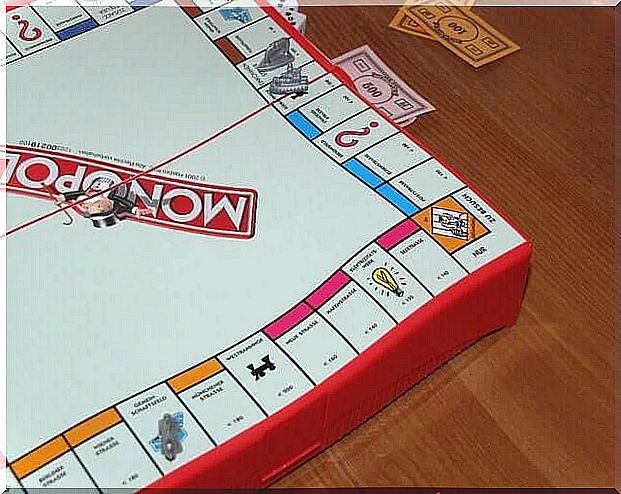The Importance Of Simulation Games In Childhood

Simulation games are an approximation of reality or, better said, a simplified representation. In other words, it is an experience that is based on reality, but does not expose it as it is in its complexity in the first instance.
This type of game offers children the opportunity to learn to recognize different situations and develop in them. Most of the situations are inspired by real-life actions, whose resolution is presented in phases and, therefore, organized.
The structure of simulation games
The solving scheme of simulation games offers a very positive learning for children, as it helps them to evaluate actions and carry them out in a conscious way. That is, it helps them to follow a structure that leads them to achieve their goals.
Learning is accomplished through experience and thus the game becomes a lot of fun. The action is always very eye-catching, so the participants have a lot of fun, without being afraid of making mistakes, as the consequences are not the same as in real life.
Thus, children learn to look for possible ways out of situations. In this way, this develops autonomy in them and allows them to have an efficient form of social interaction.

Features of simulation games
Motivation
Since the situation is presented in an interesting way, the child is concerned with understanding it so that they can reflect on possible solutions and, thus, advance to the next level. Finally, when she does, the personal satisfaction she feels increases her motivation to keep playing and learning.
Time management
Many simulation games have a time limit per level or per activity and, therefore, the child must learn to manage their time to achieve their goals and be able to advance. Of course, this is always very exciting for them, while allowing them to develop mental agility.
Decision-making
Simulation games help to develop a good decision-making ability, as it forces you to take into account different factors to obtain the most benefit. They offer many opportunities and children should choose just one. This is certainly very beneficial in terms of self-confidence.
Monopoly, an analog example
Not all simulation games are electronic or require a console. On the contrary, there are many games that are completely analogue.
A very popular simulation game that can be played in a group is Monopoly. It simulates reality very closely and allows you to experience situations that could occur in adult life, such as making a purchase or a sale, for example.
Through a board, cards, banknotes and tokens, players learn to draw strategies that benefit them, as much as possible, to conserve their capital and assets and thus win the game.

Contrast of advantages and disadvantages
Benefits
- Children develop diverse skills and increase their technological responsiveness.
- There are a wide variety of themes, game modes etc. So there are options for all tastes.
- Games are classified by age groups. In this way, each offers benefits according to the player’s age.
- They not only have fun, they also stimulate players cognitively.
- Not all games require internet use.
- They help the player to be organized and follow instructions.
- They teach the consequences of the actions taken. For example, a bad execution of an instruction can lead to defeat in the game.
Disadvantages
- If the child is not taught to manage play schedules, he can waste too much time playing in his daily life.
- If there is no parental control, children may resort to games that are not appropriate for their age, with explicit content.
- Psychologically, some games can cause dissatisfaction when the player doesn’t get the results he expected and wanted in real life.
Simulation games alone do no harm to children, but it is important to guide the activity (especially at an early age) and make timely corrections. Likewise, family play activities should not be left out.









